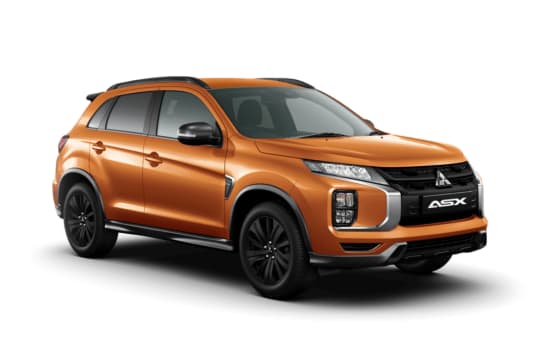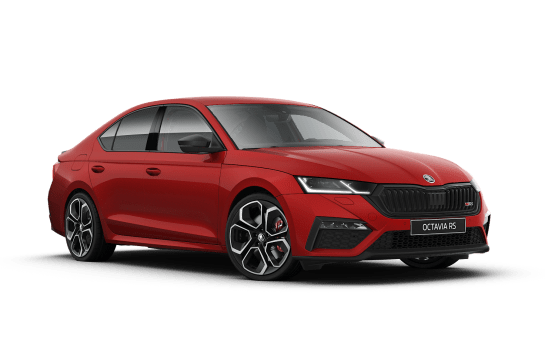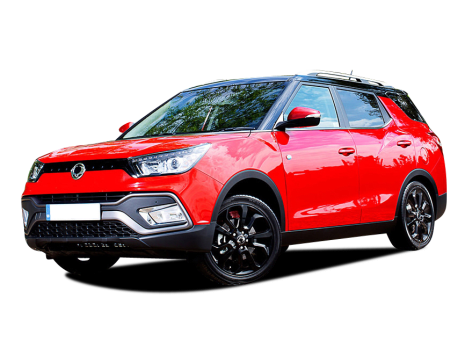
Holden Trax VS Peugeot 2008
Holden Trax
Likes
Dislikes
Peugeot 2008
Likes
- Good looks
- Charming engine
- Affordable servicing
Dislikes
- Stiff suspension
- High price
- Driver display hard to see
Summary
Holden Trax
Small or compact four-door SUVs have found favour with those who might usually climb into a hatch but, for whatever reasons, are now looking to a vehicle with the ability, actual or otherwise, of being sporty and even a little bit outdoorsy. The reality is most of these vehicles will spend their time on city and suburban streets, which perfectly suits them, and their owners’ lifestyles.
However, some of these diminutive SUVs are better at their intended purpose – and do it with much more style – than others.
How does the base-spec turbocharged Holden Trax, the LS, hold up in a bustling market segment? To find out, read on.
| Safety rating | |
|---|---|
| Engine Type | 1.4L turbo |
| Fuel Type | Regular Unleaded Petrol |
| Fuel Efficiency | 6.7L/100km |
| Seating | 5 seats |
Peugeot 2008
Looks are subjective but Peugeot’s updated 2008 small SUV is good looking from every angle.
The update brings a raft of design tweaks and some tech upgrades, but mechanically there isn’t anything new.
It’s not a cheap car and its diminutive size might scare off some buyers who can cross-shop cheaper and more value focused alternatives from mainstream Japanese and Korean brands.
Read more about
- 2025 Peugeot E-3008 electric car Australian launch and timing confirmed: New-generation mid-size EV SUV set to battle Tesla Model Y, Hyundai Ioniq 5, Kia Niro EV and Renault Megane E-Tech
- 2024 Peugeot e-208: Nissan Leaf, GWM Ora, and MG4 rival from France looks to get two battery sizes, but will it be more competitively priced?
- 2024 Peugeot 408 GT Fastback pricing and specification confirmed: Mid-size hybrid coupe crossover aims up at Audi Q5, Lexus NX and Volvo XC60
We are driving the range-topping 2008 GT variant to find out if it’s more than just a pretty face.
| Safety rating | |
|---|---|
| Engine Type | 1.2L turbo |
| Fuel Type | — |
| Fuel Efficiency | 6.5L/100km |
| Seating | 5 seats |
Verdict
Holden Trax7/10
The Holden Trax looks nice enough and is pleasant enough to live with day to day. Like many others of its ilk, the Trax may be marketed as an SUV but that catch-call moniker, which has come to be accepted to mean that a vehicle is actually sporty and off-road capable, is misleading.
As an adventure vehicle the Trax falls well short – it needs a diesel engine and much improved capability (AWD) and space – but as a lively daily driver for a young starter, or a one-child family, then it’s perfectly adequate.
If you’ve got your heart set on a Trax and you’re patient, perhaps you’ll wait until 2020 when the next-generation Trax is due here.
Peugeot 20087.2/10
The Peugeot 2008 is a handsome and accomplished little SUV that’s fun to drive and has a cabin that feels a little bit special.
In reality the 2008 is too expensive and isn’t as practical as most of the mainstream compact SUVs.
This is the car you buy with your heart, not with your head.
Design
Holden Trax
It’s a small SUV and it looks sporty and outdoorsy enough in a generic sort of way. A nuggety stance, short-wheelbase and roof rails add to this Trax’s activity-friendly demeanour, without promising too much. Take a look and make up your own mind if it’s your cup of tea; I’m not your life coach so decide for yourself whether it’s cool or plain.
Peugeot 2008
The Peugeot 2008 is a smooth operator with head-turning French flair, but the devil is in the detail.
It’s not just the 2008’s well proportioned dimensions or the healthy dollop of exterior black highlights that catch your eye, but Peugeot has added a range of design cues to symbolise the Lion on its badge.
The tail-lights have a 3D effect that make them look like cat’s claws and the daytime running lights on the front resemble a scratch mark. These pair perfectly with the lion head crest on the grille.
Look deeper and you notice the attention to detail.
The 2008's redesigned front grille's slates are colour matched to the car's body colour.
Dual exhaust pipes are finished in chrome, giving the impression of performance even if the car doesn’t deliver on it.
The GT variant gets a two-tone paint job with a black roof contrasting with the body's colour.
Inside there are plenty of high quality finishes. The centre console is festooned in gloss black and there is a lovely carbon-effect textured insert on the dash and doors.
Some hard plastics below eye-level and on touch points such as where your knee might rub are less impressive. The rear seat loses some of the lustre of the front pew with tough plastics covering the back of the front seats and most of the doors.
Practicality
Holden Trax
Its interior is plain, but practical. The LS has cloth trim and expanses of plastic, which make it a bit ordinary to look at but very easy to live with in the real world because day-to-day life involves liquid spills, crumbs and dirt – lots of dirt.
Storage spaces include a narrow glovebox, narrow plastic door pockets, four cupholders in centre console (no lidded bin here) plus two in the rear centre armrest, and driver and front passenger seat-back pockets.
The rear cargo area is a 356-litre space with the rear seats in use and the cargo cover in place), or a 785-litre space with the 60/40 rear seats folded into the floor. For this to happen, the rear-seat bases flip forward into a vertical position and the seat-backs fold forward to make the ‘new’ flat floor.
Peugeot 2008
Step inside and there is no hiding the 2008’s diminutive proportions.
It’s 4300mm long, 1815mm wide and 1550mm high, which puts it closer in size to the mini Mazda CX-3 than the larger CX-30 it is more aligned with price-wise.
This all adds up to a snug fit in whichever row you sit.
There are a couple of cupholders in the centre console - a smaller one for a standard takeaway coffee and a larger one for drink bottles.
Slight storage bins in the door can hold a regular drink bottle but there isn’t much room for much else.
The wireless device charger is hidden away behind a compartment below the central screen that opens with a push and there are two USB-C ports up front and the rear seats score a USB-C and A connection.
Rear seat passengers do without a dedicated aircon vent, unfortunately.
There is an issue with Peugeot’s i-Cockpit steering wheel and digital driver display, too.
If you like to sit low the chances are the steering wheel will cut off your view of the bottom part of the display. If you prefer to have the seat jacked up, you’ll have better vision of the readouts.
There are piano key-like physical controls for simple climate functions such as the de-mister and auto climate settings. More complex functions are done via the 10-inch central multimedia screen.
The boot is a decent size at 434L and can easily handle a weekly grocery shop or a few overnight bags.
There is only a space saver spare wheel, but this car is aimed at city driving where it is easier to source a replacement tyre.
Price and features
Holden Trax
The Trax is a front-wheel drive small SUV and the LS is the base-spec variant.
Our tester – a MY19 LS with a 1.4-litre turbocharged four-cylinder petrol engine and six-speed automatic transmission – has a listed price of $24,490 drive away. The Trax LS is available with a five-speed manual gearbox, but it’s matched to a 1.8-litre non-turbo petrol four-cylinder engine. The turbocharged LS is the way to go, I reckon.
The LS has a stack of standard features for the price, including Holden’s MyLink multimedia system, with a 7.0-inch colour touchscreen, Apple CarPlay, Android Auto and Bluetooth connectivity, USB port and power socket up front, cruise control, rear-view camera, rear parking sensors, as well as hill-start assist, hill-descent control, and more. No Trax has AEB.
Our test vehicle has 17-inch alloy wheels with a space-saver spare.
It has an Absolute Red paint exterior; prestige paint colours are available – including Mineral Black, Burning Hot and Abalone White – but they cost an extra $550.
Peugeot 2008
The 2008 range kicks off at $39,990, before on-road costs, for the base Allure grade and rises to $44,490 for the fully loaded GT variant.
That’s a lot of money for a small SUV, especially considering the Skoda Kamiq range starts at $32,990, you can get Nissan’s Qashqai from $33,890 and a Mazda CX-30 for $33,140.
There is a lot to like about the 2008’s standard equipment list, though.
Flash looking 17-inch alloy wheels are complemented by adaptive LED headlights that control individual LEDs to brighten the road without dazzling oncoming vehicles. The headlights will automatically switch on in low light situations and stay on for a short period of time after you exit the vehicle to make it easier to find your way to the door at night.
A 10-inch multimedia screen is compatible with wireless Apple CarPlay and Android Auto, and a wireless device charger completes the cord-free ecosystem.
Peugeot’s 'i-Cockpit' brings a 10-inch driver display with 3D readouts paired with a small steering wheel.
GT buyers can expect eight colour ambient lighting, a six-speaker stereo, four USB charging ports, in-built sat nav and brushed aluminium foot pedals.
Well bolstered seats are heated up front and wrapped in synthetic suede and leather upholstery with contrast green stitching. The driver’s seat is power adjustable and has a massage function but the front seat passenger will need to move the seat themselves.
There are rain-sensing wipers, roof rails, power folding and heated side mirrors and a space saver spare wheel.
It’s a solid list of equipment but is missing some features you’ll find on similarly priced rivals such as a head-up display.
Under the bonnet
Holden Trax
Our test vehicle has the 1.4-litre DOHC 16-valve four-cylinder iTi petrol engine – producing 103kW at 3000rpm and 200Nm at 1850rpm – matched to a six-speed automatic transmission.
The turbo gives the Trax a welcome kick in the automotive pants, making the turbo-equipped variant the pick of the bunch.
Peugeot 2008
Lurking beneath the bonnet is a little three-cylinder 1.2-litre turbo-petrol engine that makes 96kW and 230Nm. That’s a decent amount of grunt from the little unit, but again you can get more oomph for less from mainstream rivals.
It is paired to an eight-speed automatic transmission that drives the front wheels.
There is no hybrid help, either.
Efficiency
Holden Trax
This Trax has a claimed fuel consumption of 6.7L/100km (combined). We clocked up more than 300km of highway and back-roads driving, with a smattering of gravel-road driving thrown in. We recorded 10.7L/100km, which is much thirstier than claimed.
Peugeot 2008
Stiff emissions regulations in Europe mean these little turbocharged petrol engines have a fair bit of self control on the drink.
Peugeot claims the 2008 uses 5.4L/100km on the combined cycle. We used slightly more than this but spent most of the time in the cut and thrust of city traffic where cars use more fuel.
You’ll need to budget for pricier premium unleaded petrol, too.
Driving
Holden Trax
Driving position is high, steering is quite sharp and handling is tight and controlled, so there’s plenty of welcome driver involvement from the get-go.
The turbocharged engine makes for a lively and responsive drive and, combined well with the six-speed auto, this 1376kg Trax offers up plenty of zip from stop-starts and oodles of oomph for smooth overtaking.
Ride is very firm, bordering on harsh, with rear-seat passengers* especially feeling the lumps and bumps of irregular road surfaces by way of the tight suspension. (*I believe my children.)
Interior space is not an issue though as everyone can manage head and shoulders nicely in the tall cabin. The seats are lacking in full support though, making long trips not such an appealing proposition, and in-cabin noise builds early and becomes quite hard on your ears.
Peugeot 2008
On the road the 2008 is a bit temperamental.
Most European cars are fitted with stiffer suspension than the cosseting springs found in Japanese machines.
This means you’ll feel bumps and road imperfections through your seat more than other SUVs. It has particular problems ironing out consistent smaller bumps, which can unsettle it and lead the 2008 to skip across them.
The counterbalance to that is a more dynamic drive experience, with the 2008 exerting excellent body control through the bends as it is held in line by the stiffer set-up.
Pair this with sharp, direct and well-weighted steering and it's a fun little SUV to take on a twisting country back road.
Three cylinders might not sound like a lot, but in the real world this is all the 2008 needs.
Its 96kW and 230Nm won’t set the world on fire but the torque is accessed from just 1750rpm, which endows the 2008 with some punch off the mark and it feels zippy when navigating the daily commute.
Don’t confuse that for outright speed, though, the 2008 completes the benchmark 0-100km/h dash in 9.3 seconds.
The transmission is fine when you are accelerating or cruising at motorway speeds, where it uses its many ratios to keep the engine humming along in its sweet spot. There are paddle shifters if you want more control.
In stop-start traffic it isn’t as an accomplished performer. It can struggle to find the right ratio and this leads to a jerky movement reminiscent of dual-clutch autos.
The cabin is well insulated with the outside world kept mostly at bay, but you’ll hear the three cylinder’s charming little rumble when you put your foot down.
Parking is a cinch thanks to its petite proportions and the 2008 has no issues navigating tight city streets or underground car parks.
Safety
Holden Trax
The Trax has a five-star ANCAP rating as a result of testing in August 2013.
The LS has six airbags (including full-length curtain airbags), dusk-sensing headlights, reversing camera, rear-parking sensors, hill-start assist and hill descent control.
Peugeot 2008
The 2008 has a maximum five-star ANCAP safety rating, but that mark was given in 2020 and it might not get the same score if it was retested today.
It has six airbags, but misses out on a centre airbag that protects against head clashes in a side on collision.
It has a decent amount of safety equipment with auto emergency braking, lane keep assist, blind spot monitoring and adaptive cruise control.
Rear cross-traffic alert, which sounds an alarm if a car is approaching from the side as you reverse, is a notable absence.
Ownership
Holden Trax
The Trax has a five-year/unlimited-kilometre warranty and service intervals are recommended at 15,000km/nine months.
Peugeot 2008
Peugeot covers the 2008 with a five year/unlimited km warranty, which is the standard coverage today.
The French brand offers a range of prepaid servicing packs that’ll save you a handy amount compared to pay-as-you-go maintenance.
A five-year plan is the best value, costing $1700 for five scheduled visits every 12 months or 15,000km. That’s $638 cheaper than the pay-as-you-go servicing.





























































